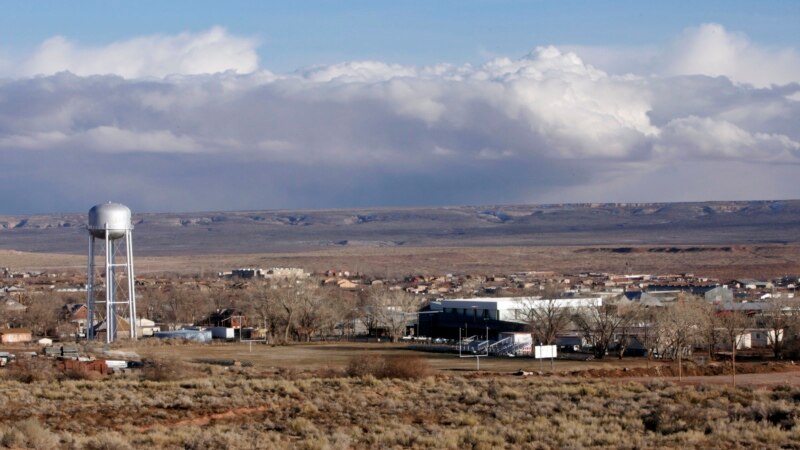The federal government will fund 17 projects across the United States to expand access to renewable energy on Native American reservations and other rural areas, the Biden administration announced Tuesday.
The $366 million program will fund solar, battery storage and hydroelectric projects in sparsely populated areas where electricity is expensive and unreliable. The funding comes from the $1 trillion infrastructure law signed by President Joe Biden in 2021.
The U.S. Department of Energy estimates that about one in five homes on the Navajo Nation in northeastern Arizona, northwest New Mexico and southeastern Utah lacks access to electricity. The Biden administration says nearly one-third of homes with electricity on Native American reservations experience monthly outages.
The news comes as Native tribes in Nevada and Arizona fight to protect their lands and sacred sites as the Biden administration expands renewable energy. This comes days after federal regulators gave Native American tribes more power to block hydropower projects on their lands.
Federal officials said the Biden administration will secure funding for the 17 projects only after negotiating with project applicants. Energy Department officials are preparing to meet with tribal leaders at a summit in Southern California to discuss clean energy projects.
“President Biden firmly believes that every community should benefit from the nation’s historic transition to a clean energy future, especially rural and remote communities,” U.S. Energy Secretary Jennifer Granholm said in a statement.
These projects span 20 states and involve 30 tribes. That includes $30 million to provide plant energy to wildfire-prone communities in California’s Sierra Nevada mountains, and $32 million to build solar and hydropower for a Native American tribe in Washington state.
Another $27 million will be used to build a hydroelectric plant to serve a tribal village in Alaska, while $57 million will be used to provide sanitation in rural areas of the Southeast, including Alabama, Georgia and South Carolina. The center provides solar and storage facilities.
Follow us on Google news ,Twitter , and Join Whatsapp Group of thelocalreport.in
